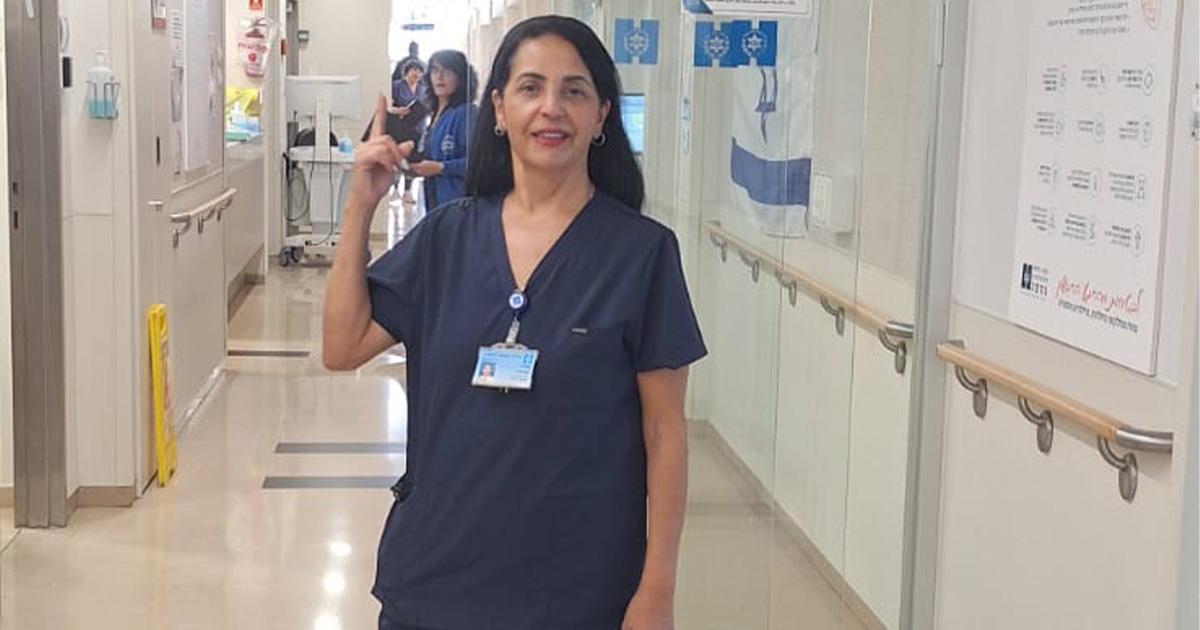They take on extra shifts. They volunteer for the COVID-19 Outbreak Units. They have busy family lives. Still, the nurses of the Hadassah Medical Organization continue to conduct research and publish regularly.
Sigal Shafran-Tikva, director of Nursing Research and Innovation, along with Julie Benbenishty and Naela Hayek, for example, analyzed the impact of structured social and emotional support that Hadassah’s nursing division leaders provided to the nurses who worked in the COVID-19 Intensive Care Units (ICUs). Their study “Adaptation of the ICU Nursing Team Working During COVID-19 Pandemic: Qualitative Focus Group Analysis” appears in the Journal of Anesthesia and Intensive Care.”
As the authors explain, “Throughout the COVID-19 pandemic ICU nurses globally have suffered from anxiety, stress and depression due to high workload, insufficient personal protective equipment, a lack of knowledge of the pathogen and a lack of direct contact with patients. Leadership action is needed to assess and care for nurses’ mental health and wellbeing. Nurse leaders need to use innovative strategies to sustain and support nurses.”
Among the Hadassah strategies were focus groups where participants could convey the logistical, clinical and emotional challenges they were experiencing as they worked in COVID-19 ICUs. The nurse researchers analyzed the perceptions and experiences of the participants, which included 15 nurses who, before the pandemic, were working in respiratory, medical, cardiac and neurosurgical ICUs.
The participants related that working in an unfamiliar environment, with treatment plan uncertainty, non-standardized treatment, difficulty in clinical decision making, family pressures from home and the stress of critically ill patients’ families compounded the difficulties of daily work. As a result of the focus groups, the study authors note, nursing leaders were able to address the challenges and improve the working conditions. For example, the nurses emphasized that they felt abandoned, lacking direct leadership. In response, the nursing leaders added training and supervision for the COVID-19 nursing staff. They also relieved stress by reducing the number of patients per room and clarified treatment regimens.
Demonstrating concern for the staff’s emotional health, the nurse leaders had special foods brought to the unit for them and offered free psychological consultations for any staff member who requested help. “Many nurses,” Benbenishty relates, “received months of mental health relief from the psychologists employed at the hospital.”
This responsiveness on the part of the nursing leaders indicated to the nurses that the nursing administration seriously listened to their issues and took their recommendations to heart.
The nurse researchers found, too, that external praise, along with a strong esprit de corps among those working in the COVID-19 units, had bolstered the nurses’ resilience. In addition, when these nurses returned to their original ICUs, they were viewed as heroes, having gained additional knowledge and respect.



.svg)





